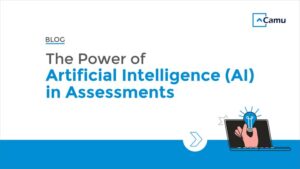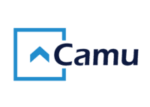
Uncover the numerous possibilities of a collaborative system: Camu’s Unified SIS and LMS
by AR Swami,
Get acquainted with the most seamless duo.
Camu Learning Management System (LMS) is a cloud-based platform that offers Institutions a unified space for educational resources, namely content resources, assessments and grading, and the Student Information System (SIS) offers administrative services.
LMS makes life easier for all educational stakeholders with its simplicity. Students can access learning materials and view assignments and grades. Similarly, faculty can design curriculums and customize courses, while management can govern the entire pedagogical process.
But before we delve into Camu’s superior offering, let’s take a look at the global LMS scenarios, respectively.
Glancing at the LMS in the global Landscape
The popularity of the LMS in the global landscape has tripled across the world.
These global systems are loaded with collaborative features to facilitate the interaction between Instructor and the Learner i.e., a social user interface, but they lack the managerial tools i.e., an academic governance interface, to offer an institution any value with regards to Academic Governance.
From an institution purview, there is nothing to be gained from the Global LMS, as one cannot raise departmental or institutional queries. Institutions have a fundamental responsibility to produce various reports for Accreditation purposes, as well as their own autonomy assessment and day-to-day academic governance.
Therefore, it will be a major disadvantage to run a Global LMS, as the platform will certainly draw a blank when it comes to mining basic data and insights while it will serve as the platform for online learning.
Integrating the LMS into an SIS
There have been several instances in Camu’s journey, thus far, where a higher education institution has chosen to integrate its SIS with a Global LMS.
Many a time, these learning centers make compromises in the name of automation, reducing the LMS to a mere collaborative tool.
In reality, the LMS is a powerful and robust platform that acts as the foundation of an institute’s academic operations. And when paired with an SIS, true synergy is created!
The following are the key challenges faced by an institution when amalgamating the SIS & LMS:
- LMS’ do not have an academic structure in place. The course code, once used, cannot be utilized again in the next term for the same course. Institutions end up having a different course code, making the SIS implementation overly complex.
- If course codes change, the CoE module becomes redundant. With CoE, once the regulations are defined and applied to the course codes, the structure has to stick till the end of time. In effect, it simply rules out the ability to have one integrated solution for the CoE and the LMS.
- LMS systems allow the teaching faculty to follow an assessment structure, as per their needs. This makes it difficult for institutions to govern it and/or ensure a standard model is followed. The LMS systems will not be able to slave off an SIS with regard to the academic structure.
- If OBE needs to be implemented, it becomes challenging to map course outcomes to assessment questions within the LMS. Everything from assignments to assessments will need to be duplicated manually in the SIS, for the purpose of OBE.
- Once a new faculty member is assigned a course, it is certain that they won’t have access to the content created by the teaching faculty in the previous term. The content has to be re-created over and over again. Some LMS’, however, offer the export and import function which challenges its use.
- Teaching faculty can run all the internal assessments in the LMS and only re-enter the final internal total in the SIS. But this is manually driven and needs to be re-done a third time for OBE.
Presenting Camu’s Unified SIS and LMS!
Camu LMS 2.0 goes beyond the traditional Learning Management System. The upgraded model takes on an international perspective. So, rather than the “tasks” being the focal point, the individual “courses” become the main context, from where all other actions flow. More than just software, it’s a next-gen learning platform that is customer-centric, innovative, agile, scalable, and simple to use.
Camu LMS 2.0 offers a social user interface and an academic governance interface. While students and faculty can focus on what they need through a social approach, the institution can extract valuable insights for the purpose of continuous improvement.
Here’s what makes Camu unique:
- Course codes can be retained – the term/semester, academic year and the course code create a link between the SIS and the LMS and hence the LMS retains all its history and can be queried as needed.
- Online assessments are unified with OBE and CoE. Enter the marks once and the outcome attainment is automatically computed. The marks are consolidated automatically to determine the final grade
- Seamlessly switch between the SIS and LMS – run the moderation and normalization and make decisions without any boundary.
- Staff plans can be built with ease. The new staff gets access to the course content, which they can delete (and start afresh), modify or re-use.
- All content and conversations can be referred to at any point in time for the purpose of accreditations or review of autonomy. It is saved based on the academic structure.
- It will be possible to run reports across the courses and programs to gain insights
- You can achieve Governance and a social experience in one single platform – Camu LMS 2.0
Camu has had a single-minded focus in delivering a unified SIS and LMS, which offers a holistic teaching and learning experience for faculty and students, along with academic governance and reporting capabilities for the institution! Click on the image below to read a blog on this topic by AR Swami, Co-Founder & CEO of Camu.







